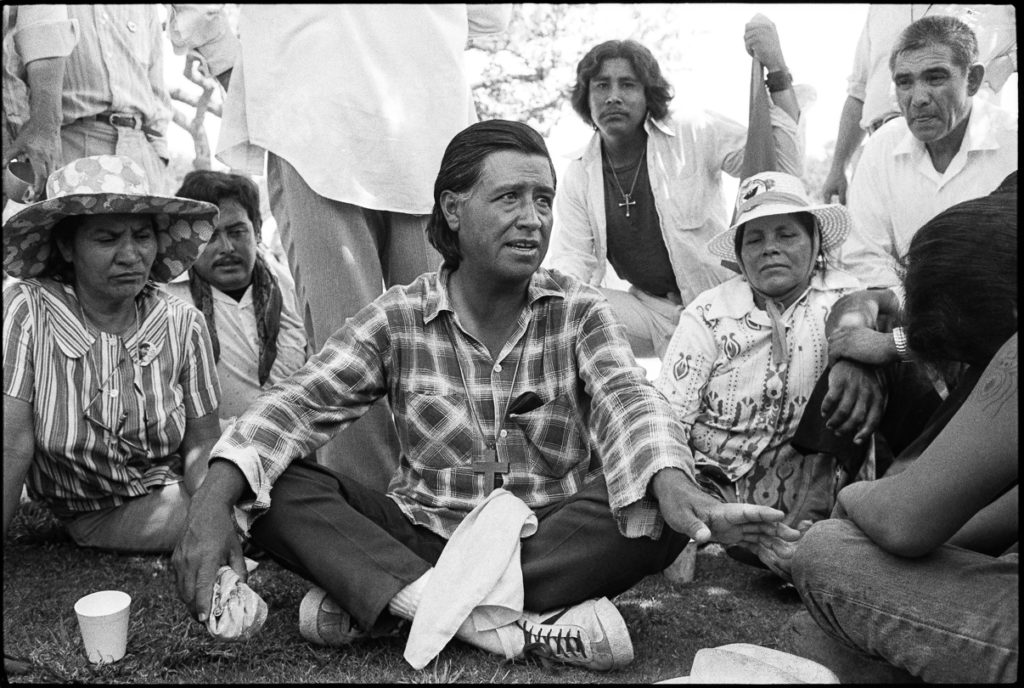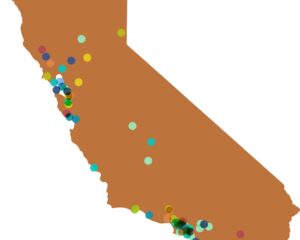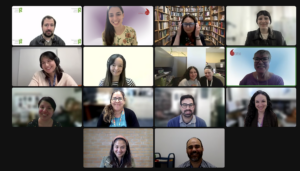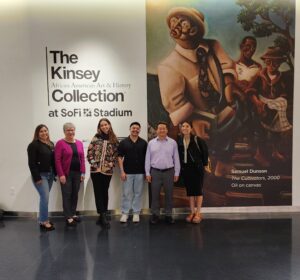If you’ve ever had a California grape, a salad made with lettuce grown in the Central Valley, or many of the other produce that ends up on dinner tables around the entire country, you are connected to the legacy of Cesar Chavez. As a young man who grew up in a migrant farmworker family, Chavez experienced firsthand an unpredictable childhood, his family often relocating to migrant camps and inconsistently attending school. After his time in the Navy during World War II, he went back into migrant farmworking, and began training under famed community organizer Saul Alinksy’s program at the Community Services Organization (CSO). From 1965 to 1970, he, along with many other farmworker leaders, led a strike and a nationwide boycott that led to increased wages and vastly improved working conditions for farm laborers. His work eventually led to the creation of the United Farm Workers, a national union that still organizes to this day. Although he passed in 1993, his legacy lives on, celebrated by many and acknowledged even by presidents—he was awarded the Presidential Medal of Freedom posthumously in 1994, and in 2014 was acknowledged by the naming of Cesar Chavez Day, a federal commemorative holiday on his birthday, March 31. This month, celebrate and remember Cesar Chavez and the legacy of the farmworker movement he supported with projects throughout the state: check out the list below!
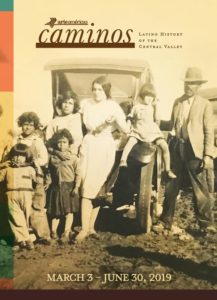 Central Valley Latino History Project
Central Valley Latino History Project
A multimedia exhibition and public program series, the Central Valley Latino History Project broadens the scope of Latino history in this region. Many narratives in this area focus on the farmworker movement and agricultural workers in the Central Valley, in particular Cesar Chavez. This project, which was awarded a Humanities for All Project Grant in 2018, aims to broaden and contextualize this history in the larger framework of Chicano and Latino presence in the Central Valley. The exhibition, titled Caminos, opens on March 3 at Arte Americas: The Mexican Arts Center in Fresno, with a bold design and interactive displays driven by video content, large scale photos, re-designed maps, and infographic data. The project illustrates how Latinos are part of a greater history, not only as immigrants, but integral to this societal landscape. Along with the opening will be public programming geared to youth and families, including oral history workshops and teacher trainings, produce-related educational materials, an exhibition guide with essays and an interactive website. A touring component will reach rural cities throughout the Central Valley after the exhibition. Check out the exhibition programs listed on our calendar, including a screening of California Humanities-supported film ADIOS AMOR: THE SEARCH FOR MARIA MORENO in May.
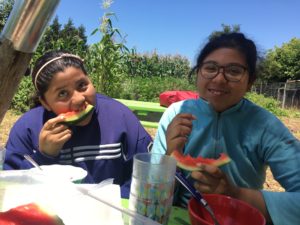
Growing Justice: Raising the Voices of Underserved Youth to Build a Culture of Health
California’s Central Coast is a region well-known for its productivity and farms. However, many farmworker families in the region face challenges like food insecurity, substandard housing, and neighborhood safety. In 2018, the Community Agroecology Network (CAN) in Santa Cruz created Growing Justice: Raising the Voices of Underserved Youth to Build a Culture of Health, a community-based youth empowerment project. Pajaro Valley Latinx youth, mostly from farmworker families, produced knowledge and tools that promoted cross-cultural and intergenerational understanding. In a region deeply shaped by the inequities of the industrial food system, the work helped the youth to foster a more inclusive community, through a mobile garden exhibition and community dialogues with residents. While the project has ended, the exhibit and conversations are digitized and available online at CAN’s website.
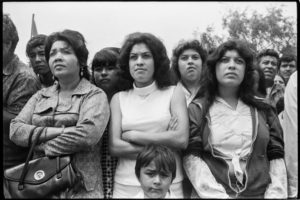
Miriam Pawel & Mimi Plumb: Pictures from the Field
In 2016, with California Humanities support, Pulitzer Prize-winner and journalist Miriam Pawel spoke on “the Farmworker Movement in California,” reflecting on the lessons of this movement for today’s organizers and activists. The program was part of the Pulitzer Prize Centennial Campfires Initiative, a national celebration marking the 100th anniversary of the Pulitzer Prize. She wrote about her talk for us on the blog. Pawel, who wrote “The Crusades of Cesar Chavez,” curated “Democracy in the Fields,” a California Humanities-supported exhibit exploring the stories of farmworkers who supported Cesar Chavez in 1975, and features the documentary photography of Mimi Plumb, who was a college student at the time. The intimate photographs and stories Plumb collected were featured in California Humanities’ 2017 Art of Storytelling exhibit “Pictures from the Field,” which is still available online.
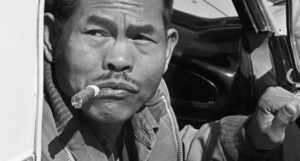
The Delano Manongs: Forgotten Heroes of the United Farmworkers Union
While the story of Cesar Chavez and the role of Mexican and Chicano laborers in the farmworker movement is known around the country, a California Documentary Project-supported film tells the story of another key leader in the farm labor movement—Larry Itliong. Filipino labor organizer, Larry Itliong, a cigar-chomping union veteran, organized a group of 1500 Filipinos to instigate one of the American farm labor movement’s finest hours—The Delano Grape Strike of 1965. The strike began a collaboration between Filipinos, Chicanos and other farmworkers that would go on for years, and eventually brought about the creation of the United Farm Workers Union (UFW). Itliong and a group of Filipino farm workers THE DELANO MANONGS: FORGOTTEN HEROES OF THE UNITED FARMWORKERS UNION highlights how Filipinos played a pivotal role in the fight for just wages and working conditions in California’s Central Valley. Watch the trailer on Vimeo.

